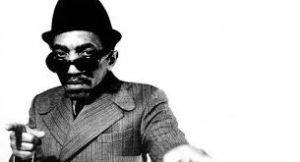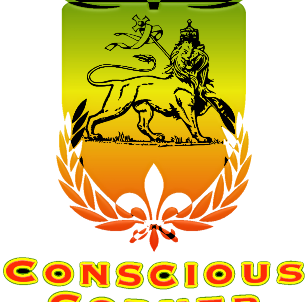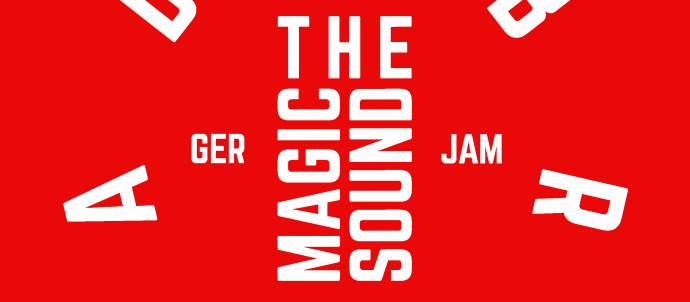Blue Beat Records was founded in 1960 in London, England, as a sub-label of Emil E. Shalit’s Melodisc Records. Melodisc, which was founded in London in 1947, specialised in calypso and mento music. It focused on American-influenced Jamaican blues and R&B, which later evolved into ska following the positive response in the United Kingdom to Laurel Aitken’s Melodisc release of “Lonesome Lover” Shalit put Sigimund “Siggy” Jackson in charge of the label, and Jackson subsequently chose the name Blue Beat, which he said was an adaptation of “It sounds like blues and it’s got a great beat” or “Blues Beat”, which apparently was a generic term for Jamaican blues music at the time.
The first Blue Beat release was Aitken’s “Boogie Rock”, which was licensed from Clement “Coxsone” Dodd’s Downbeat label. The label’s distinctive blue covers and silver logo first appeared with Blue Beat’s third release, “Manny Oh” by Higgs & Wilson. The label reached licensing agreements with the majority of major Jamaican producers and released many home-produced recordings by Jackson featuring English-based artists such as the Marvels. Even some Prince Buster hits, including “Wash-Wash”, were recorded in London, and included well-known UK musicians such as Georgie Fame. Blue Beat released around 400 singles and over a dozen albums between 1960 and 1967. Prince Buster became the label’s biggest star, with songs such as “Al Capone”.
Jackson established a Blue Beat night at the Marquee Club in London, and fashion accessories featuring the label’s logo became popular. Many Blue Beat recordings were played alongside soul music in dance clubs such as the Twisted Wheel in Manchester. In addition to appealing greatly to the West Indian community in the UK, the music became associated with the British mods of the early to mid-1960s, as well as the skinheads of the late 1960s. In the late 1960s and early 1970s, Blue Beat records became highly collectible amongst those who regarded records like Prince Buster’s “Al Capone” as classics.
When the ska rhythm slowed to rocksteady around 1966, Melodisc started a new sub-label, Fab, and Blue Beat stopped issuing new releases after 1967 (although the back catalogue continued to sell for several years). Jackson left to work for EMI, where he founded the Columbia Blue Beat label. The original Blue Beat label was revived in 1972 for a short run of obscure releases including John Holt’s “Ok Fred” and “Sad News” singles.
In 1987, Buster Bloodvessel (of the 2 Tone ska revival band Bad Manners) and producer Ivan Healy Purvis started a brand new record label called Blue Beat Records and licensed the name and logo. The label was run from a reclaimed riverboat named “The Bloodvessel”, which was in Bloodvessel’s backyard in Spring Hill. Between 1987 and 1990, this label released several records, including the Bad Manners album Return of The Ugly. The Bad Manners single “Skaville UK” was the last Blue Beat single to make an impact on the UK charts, reaching #87 in 1989.
In 2004, Jackson was approached by band leader Marcus Downbeat with the idea of starting a Blue Beat revival. They released a series of 7-inch singles in the style of the label’s 1960s output. These releases included six singles by Downbeat’s band No. 1 Station, which featured Blue Beat veteran Eddie ‘Tan-Tan’ Thornton on trumpet and several guest vocalists, including The Marvels. Jackson re-issued several tracks from his own back catalogue, as well as one single each from ska revival band Intensified and Blue Beat veterans the Pyramids. These records were all limited edition vinyl pressings. Jackson subsequently retired from the record industry. In 2011, Downbeat officially acquired Blue Beat Records to continue with his aim of creating a Blue Beat revival
 Island usually gets the credit for establishing Britain as ska and reggae's second home, but it was a chaotically run London indie label that created the scene in the first place. Before Island opened an office in London, Blue Beat had the keys to Prince Buster, Laurel Aitken, Derrick Morgan and Owen Gray, and brought rasta drummer Count Ossie and sound-system originator Duke Reid over from Kingston to play Lewisham and Brixton.
Island usually gets the credit for establishing Britain as ska and reggae's second home, but it was a chaotically run London indie label that created the scene in the first place. Before Island opened an office in London, Blue Beat had the keys to Prince Buster, Laurel Aitken, Derrick Morgan and Owen Gray, and brought rasta drummer Count Ossie and sound-system originator Duke Reid over from Kingston to play Lewisham and Brixton.


